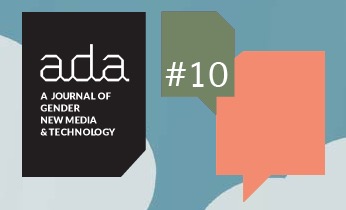NMCC welcomes seven new students from CAS, SOJC, AAA, and Law to our collaborative community of new media scholars!

Aaron Bjork: MFA Candidate, Art
Working extensively with visual digital media for the past decade, Aaron completed a BFA in Graphic Design at the Art Center College of Design in California and is interested in theory of digital technology. In his work, he is primarily concerned with examining the individual psychic impact of the constant stream of digital stimuli that plays such a large part in modern culture.
Ellen Gillooly-Kress: PhD Candidate, Theater Arts
Ellen’s research interests are focused on the intersection between analogue and digital practices in the theater. After receiving her MA in Theoretical Linguistics from the University of Oregon, her practice has begun to explore the boundaries of film and interactive media when interacting with bodies in live performance, believing that the analogue and the digital do not have to be in opposition.
Theodore Harrison: PhD Candidate, Media Studies
Theo completed his undergraduate and graduate work in Communication Studies at CSU Sacramento, where his participation in the McNair Scholars Program guided him towards the field of Media Studies. His research focuses on how minority media representations function in American society, specifically how they interact with and impact minority populations.
Makoto Kurokawa: MS Candidate, Conflict & Dispute Resolution
After studying law in both the United States and Japan, earning her LL.M Masters of Laws? from the University of Oregon, Makoto is back for more, focusing on intellectual property rights and the incompatibility between U.S. copyright laws and East Asian cultures. She believes the field of new media provides an opening to this issue of cultural differences – particularly in the world of movie production – which needs to be acknowledged.
Bonnie Sheehey: PhD Candidate, Philosophy
Bonnie received her MA in Philosophy here at the University of Oregon and is interested in applying her chosen methodological approach in philosophy to the analysis of new media and digital culture. She hopes a deeper understanding of new media and technology practices will inform her teaching in the ethics of these realms, and would like to study the practices of media archaeologists and how changes in technology impact perceptual and ethical interactions.
Natalie Wood: MFA Candidate, Art
Though Natalie does not directly engage with new media as a subject matter, technology as a physical medium is integral to her work. After graduating with a BFA in Studio Art from Brigham Young University, she began exploring the ways in which using technology as a material can enhance the meaning of finished product and is eager to participate in community discussions on the expanding role of new media and its influence.
Alexander Wurts: MFA Candidate, Art
Alex is an interdisciplinary artist interested in the ways new media influences artistic disciplines and the role it plays in our culture at large. He earned his BFA in Studio Art from Austin Peay State University, and in his own practice explores the aesthetic, political, and sociological impact of digital culture, hoping to create a dialogue that engages with the implications of the increasing presence – and increasing complexity – of technology in daily life.









